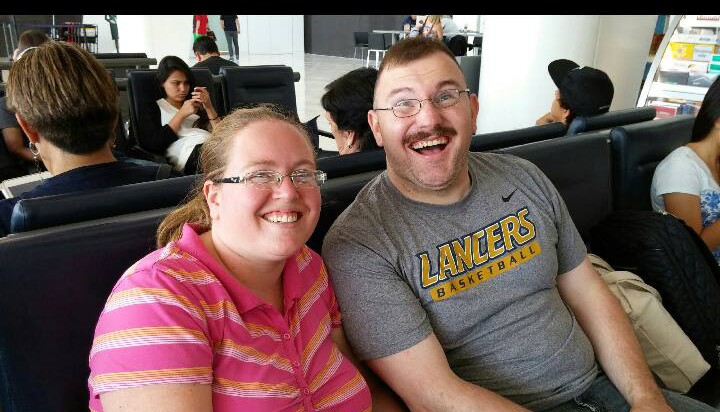God tricked me into taking a break from technology.
I’ve long admired people who can walk away from social media for an extended period of time and embrace the solitude. It sounds like a refreshing way to live.
And yet I can’t make myself do it. Which is why I think God had to trick me.
Earlier this summer, my husband and I went to Kenya with a team from our church. Two weeks before the trip, I learned for the first time that we wouldn’t be allowed to bring our cell phones with us. Maybe not a big deal. We were going to Africa, after all.
But we were leaving our kids, ages 7 and 5, behind with grandparents and in the year 2015, it never occurred to me that a cell phone ban would even be a thing.
I did not take the news well. I cried for days. I snubbed my pastor, who was leading the trip, when he tried to talk to me. It almost made me physically ill. I proposed a compromise. I sought commiseration. I basically behaved like a toddler throwing a tantrum.
No! You can’t make me!
There were deeper issues than just feeling like I needed to be connected to social media. I wanted a direct line to my kids, even if I couldn’t be physically present. I wanted to be in control of how I checked in on them. I had serious trust issues, even though I knew they were in good hands.
“If I’d have known about this at the beginning,” I told Phil, “I’m not sure I would have signed up for the trip.”
“Maybe that’s why you didn’t know about it then,” he said.
For almost a year, God had made it clear that we were to go on this trip. He provided money when we didn’t expect it and He kept moving our hearts in ways we couldn’t ignore.
Maybe He wanted me on this trip whether I could take my phone with me or not.
I sat with that for a day or two, considering the possibility that God—not my pastor or my church—might be asking me to do this.
Our group settled on a compromise. We could take our phones but we would have limited access to them while we traveled. And my husband and I did have a chat with our pastor to clear the air before we left.
The way forward was settled even if I was still unsettled. It had only been two years since I’d had a smart phone and already I was so attached to it that I couldn’t imagine being without it for 10 days. That was a problem I could acknowledge, but I still didn’t see how it could possibly turn out well.
The phone went on airplane mode as soon as we loaded up the vans. I tucked it away, reluctantly and with a bit of anxiety, because I use my phone for lots of things: weather, clock, calculator, flashlight, to name a few.
Even as I write about it and think about it now, more than a month after, my heart starts to race. I’ve believed the lie that I’m useless without my phone.
As we flew from New York to Belgium and then from Belgium to Rwanda to Kenya, not having access to a clock was a benefit. I had no idea what time it was locally or what time my body thought it should be, so I just went with it. I slept when I was tired, and I ate when they fed us on the plane.
We were tired enough we got to our destination in Kenya that the phone didn’t beckon me at all.
The first morning was a different story, though. (You can read more about that over at Shawn Smucker’s blog, where I have a guest post on the subject today.) I felt like part of me was missing. I kept reaching for it, thinking I’d take a picture or check the weather or the time. I had to re-train myself to look for the clock in a room. Eventually, I could guess the time by where the sun was. We were so close to the equator that sunrise and sunset were near 7 a.m. and 7 p.m., respectively.
And the weather was virtually the same every day, so I didn’t have to check for the possibility of rain or whether I should wear jeans or shorts. We dressed in layers for the cool mornings and evenings, and changed our clothes when appropriate to the dress codes of the villages or the activities in which were participating.
I still wonder if it was easier to be without my phone on our trip because our days were planned out for us and because of our location.
Most days, we were so busy I didn’t worry about what time it was. On one of our painting days, four or five hours passed before I even thought, “What time are we eating dinner?” It was freeing, in a sense, to be so involved in life that I didn’t have to keep track of the time. Here, I feel like I have to fill my hours according to a certain schedule.
When we were given access to the WiFi password and agreed to limit our use to an hour in the evenings in our rooms, I will admit to being tempted to push past those limits. If I was in my room, who would know if I checked my e-mail in the morning? Because of the time difference, I didn’t always get the most current updates on our kids and how they were doing. I craved information about them, and the phone was the only way to get it. As hard as it was, I did stick to the agreement as I understood it. And most nights, I was too tired to even bother logging on to the network and checking e-mail.
In the evenings or at meal times, when I might have been surfing my phone for whatever, I was engaging with the world around me. We played Apples to Apples or sat around talking. We looked at the stars or smelled the flowers or took a walk.
I sometimes convince myself that I’m too tired at the end of a day to really engage with my kids for one more minute, but in Kenya, I was just as tired or more so at night and I still found some reserve energy for human connection. I’m ashamed of myself for all the times I zone out with my kids.
In the first week after our trip, I practiced leaving my phone in another room, or in the car if we were playing at the park. It was freeing when we didn’t need to be anywhere, and it was out-of-sight, out-of-mind. I didn’t think about checking it because I couldn’t. It wasn’t with me.
Old habits die hard, though, and I’m back to my former ways. Some of them anyway. The lure of social media, especially for someone who creates content, is hard to escape. I feel pressure to be interesting and post regularly so that people remember who I am and know what I’ve been up to. Because we all know that out-of-sight, out-of-mind also applies online. If I don’t see your updates regularly, it’s easy to forget you. (And that is not an easy confession to make.)
Even though I’m struggling to put my technology experience in Kenya into practice back home, I know that it was a good exercise for me, one I wouldn’t have chosen for myself. And I know I need to impose limits on myself for the good of my family and my soul. I don’t want to have to be tricked into doing it again.
I’m curious how you’ve accomplished this, or if you’ve ever thought about it. Do you feel the pull of social media on your life? Have you ever taken an extended break from it? How do you limit your online time in daily life?



















